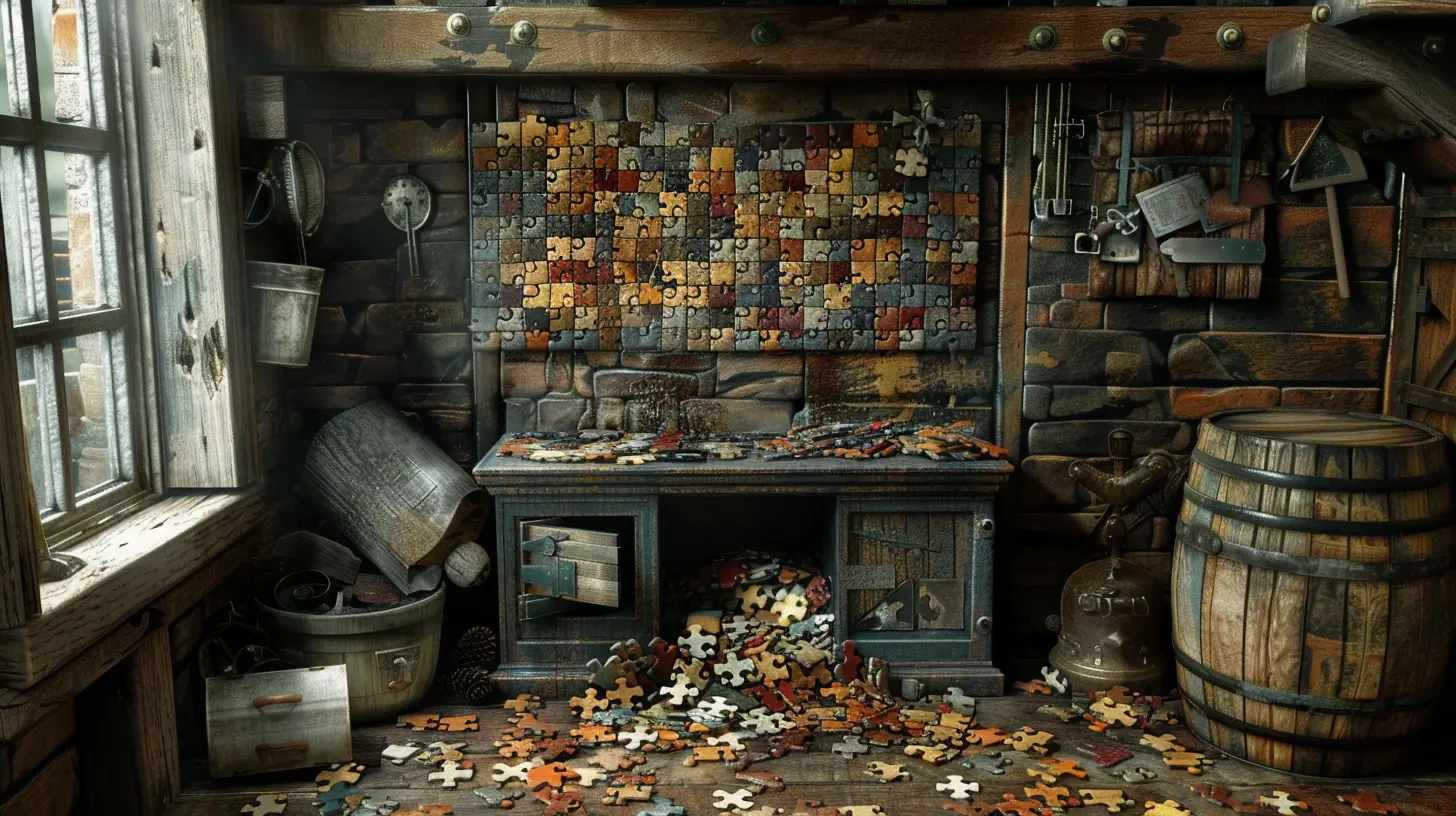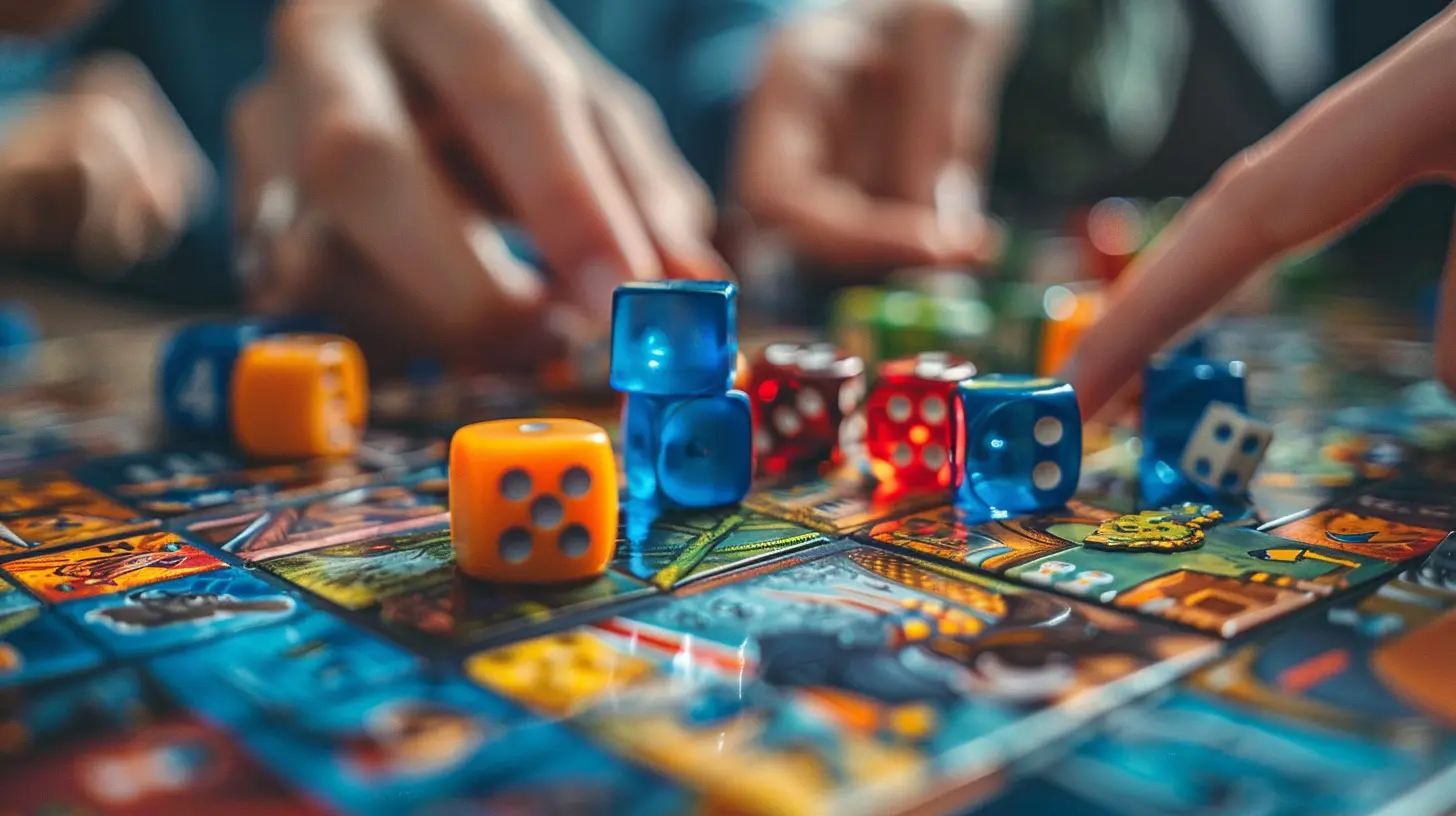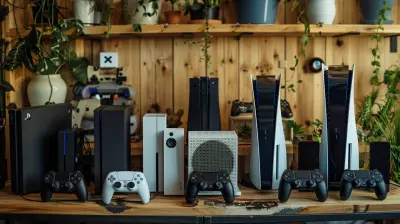Why Puzzle Games are Perfect for Quick Breaks
23 November 2025
Ever found yourself stuck in the middle of a boring workday, craving something fun to distract your brain for just a few minutes? We've all been there. Whether you're waiting for your coffee to brew, taking a breather between meetings, or just trying to reset your brain during a study session—puzzle games are the perfect little escape hatch. But why puzzle games, specifically? Why not an action-packed shooter or a sprawling RPG?
Let’s dive into why puzzle games are the unsung heroes of quick breaks and how they manage to blend relaxation, challenge, and satisfaction into bite-sized chunks of gameplay.
What Makes Puzzle Games Ideal for Short Sessions?
1. They're Low Commitment, High Reward
One of the main reasons puzzle games shine during short breaks is because they ask very little of you upfront. You don’t have to commit hours of your life or remember where you left off in a complex storyline. Just jump in, solve a puzzle or two, and you’re good to go.Most puzzle games are built around quick, repeatable actions. Think Tetris, Sudoku, or a slick mobile game like Monument Valley. You can literally start a game, play for five minutes, and walk away feeling like you actually accomplished something. It’s the digital equivalent of crossing something off your to-do list—but way more fun.
2. They Boost Cognitive Function (Without You Even Noticing)
Here’s the sneaky little secret about puzzle games: they’re basically brain workouts in disguise. When you’re solving a puzzle, you’re using parts of your brain responsible for memory, pattern recognition, critical thinking, and spatial awareness—all without breaking a sweat.Even five or ten minutes of playing a puzzle game can reset your mental state, help you refocus, and sharpen your mind for the tasks ahead. It’s like giving your brain a mini espresso shot—but with colors, shapes, and satisfying sound effects.
3. They’re Easy to Pick Up, Hard to Put Down
Most puzzle games follow a super simple formula: easy to learn, but tough to master. This makes them perfect for bite-sized play sessions. You don’t need a tutorial the length of a movie just to get started. Within seconds, you’re tapping tiles, rotating blocks, or dragging shapes.And while the first few levels might feel like a breeze, the gradual difficulty curve keeps your brain engaged. These little challenges are just hard enough to be tempting but not so hard that you throw your phone across the room.
The Best Puzzle Games Are Designed With Breaks in Mind
There’s a reason why so many puzzle games are chart-toppers in the app stores—they’re built for the modern lifestyle. Quick, convenient, and satisfying. Let’s look at some of the design elements that make puzzle games perfect for short plays.1. Pause Anytime, Anywhere
Ever try pausing a fast-paced online shooter right in the middle of a match? Yeah, good luck with that. Most puzzle games, on the other hand, are designed with flexibility in mind. Things don't explode if you step away for a minute. You can pick up right where you left off—no pressure, no consequences.This makes puzzle games ideal for people on the go. Commute delayed? Dentist appointment running late? Got five minutes on the couch? Boom—two puzzles done.
2. Minimal Controls = Maximum Relaxation
You won’t find complex button combinations or dizzying 3D camera controls in most puzzle games. Instead, you get intuitive mechanics that feel natural whether you’re playing on your phone, tablet, or even your smartwatch.Swipe, tap, drag, match. That’s it. It’s so simple that you can play one-handed while sipping your coffee or petting your cat. It's a low-effort, high-enjoyment ratio that few other games can match.
3. Quick Feedback Loops
Puzzle games don’t leave you hanging. Solve a level, and you get immediate feedback—animations, points, pleasing sounds, maybe even a virtual high-five. This instant gratification taps right into your brain's reward system, giving you a tiny dopamine hit that can genuinely lift your mood.It’s like cracking a joke and actually getting a laugh. Who wouldn't want that mid-day confidence boost?
The Hidden Health Perks of Puzzle Gaming
Let’s get a little nerdy for a sec and talk science. Puzzle games aren’t just fun—they’re actually good for you. And when used appropriately, they can improve your overall mental wellness.1. Reduces Stress and Anxiety
When you're stuck on a problem at work or stressed about a deadline, clearing your mind can be tough. Puzzle games offer a form of active meditation. You’re focusing your thoughts on something engaging but not overwhelming. That sense of control and accomplishment helps lower cortisol (your stress hormone) levels.It’s not a magic bullet, but five to ten minutes of puzzling can make you feel a whole lot calmer. It’s like giving your brain a warm, fuzzy blanket.
2. Enhances Problem-Solving Skills
Regular puzzle gaming improves your problem-solving ability over time. It trains your brain to spot patterns faster, think critically, and even anticipate outcomes. These are all skills you’ll use in real life—yup, even outside of gaming.So when your boss emails you a bizarre spreadsheet or your kid asks a homework question you don’t understand, your puzzle-honed brain might just save the day.
3. Helps with Memory and Focus
Many puzzle games require you to remember previous moves, spot recurring patterns, or hold multiple possibilities in your head at once. This kind of mental juggling is great for improving short-term memory and attention span.Over time, you may find it easier to concentrate longer and switch between tasks more fluidly—all thanks to your casual midday gaming habit.
Mobile Puzzle Games That Nail the Quick Break Vibe
Looking for something fun and functional? Here are a few mobile puzzle games that have absolutely mastered the art of the quick break:1. Two Dots
Sleek, stylish, and oddly addictive. Connect the dots and clear the board in as few moves as possible. Great for a few minutes of focused thinking.2. Monument Valley
This one’s a visual masterpiece. Its M.C. Escher-inspired puzzles and relaxing music make it perfect for winding down during a hectic day.3. Threes!
Simple in concept but deeply strategic. Slide numbered tiles around to combine and build higher numbers. It’s basically brain yoga.4. Sudoku (Any App)
A timeless classic. Pick your difficulty level and spend a few minutes sharpening that mental blade.5. Brain It On!
Physics-based puzzles that make you think outside the box… or draw your own. Each level feels like a mini science experiment.The Social Side of Puzzle Gaming
Think puzzle games are a solo affair? Think again. Many games now feature leaderboards, competitive modes, or daily challenges you can share with friends. It adds a sprinkle of friendly competition and makes your "quick break" feel like a mini social event.You can challenge a coworker to beat your score on Wordle, or bond with your partner over a daily crossword. It’s a shared moment of fun that anyone can enjoy—no fancy gear required.
Puzzle Games vs. Other Game Types — Why Less is More
When it comes to short breaks, not all games are created equal. Here’s how puzzle games stack up against other genres:| Game Type | Good for Quick Breaks? | Why/Why Not |
|---------------------|------------------------|----------------------------------------------------------------------|
| Puzzle Games | ✅ Yes | Short levels, minimal setup, low pressure |
| Action Games | ❌ Not really | Require fast reflexes, no pause, not ideal for limited attention |
| RPGs & Story Games | ❌ Nope | Deep narratives demand time, focus, and memory |
| Sports Simulators | ⚠️ Sometimes | Fast-paced but often require full matches or sessions |
| Idle Clickers | ✅ Sort of | Good for quick sessions, but limited engagement |
Puzzle games hit the sweet spot: focused, flexible, and fun in short bursts.
Final Thoughts: Puzzle Games Just Get It
Honestly, puzzle games don’t get enough credit. They’re not flashy, and you won’t usually see them headlining major gaming conventions—but they’re the quiet MVPs of your daily life.They’re the perfect fix when you want to feel productive and relaxed all at once. You're not just killing time; you're feeding your brain, boosting your mood, and having a little fun along the way.
So the next time you find yourself with a few spare minutes, skip the mindless scrolling. Open a puzzle game instead. It’s like a coffee for your brain—minus the jitters.
all images in this post were generated using AI tools
Category:
Puzzle GamesAuthor:

Lana Johnson
Discussion
rate this article
1 comments
Greta Newton
Absolutely! Puzzle games offer a refreshing mental reset—perfect for busy lives! What’s your favorite?
November 29, 2025 at 4:03 AM

Lana Johnson
Thank you! I love Sudoku for its quick engagement and challenge. What about you?


